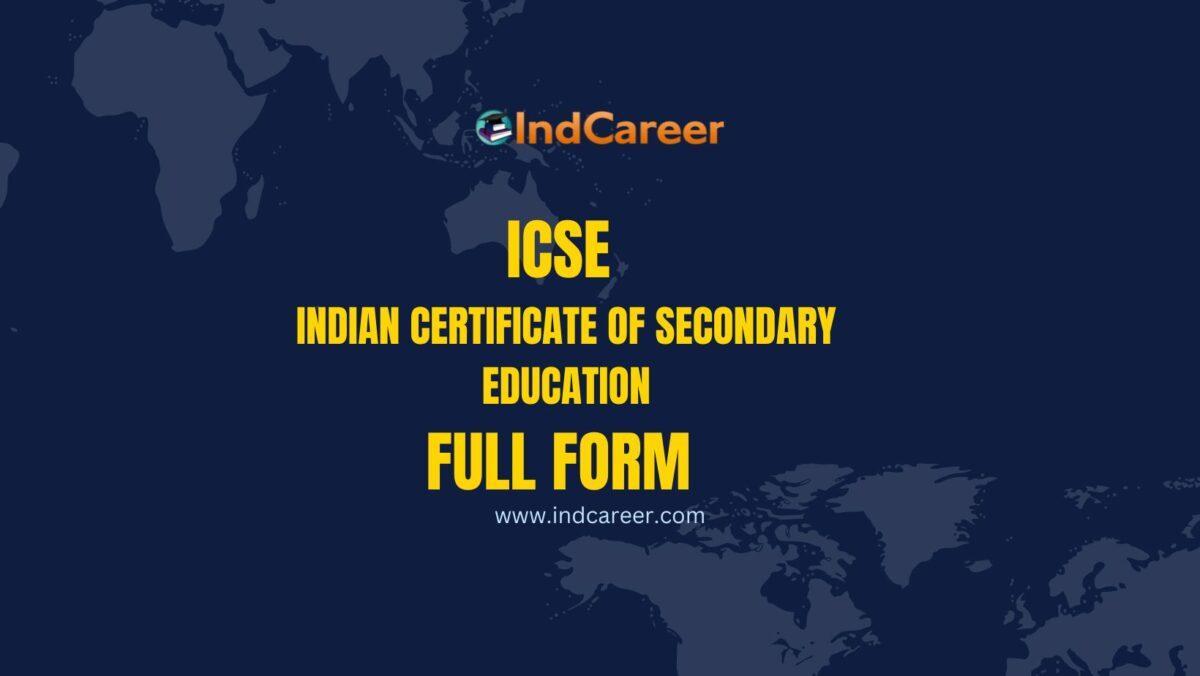Contents
- 1 Introduction to the ICSE Board
- 1.1 Origin and History of the ICSE Board
- 1.2 Importance and Recognition of the ICSE Board
- 1.3 ICSE vs. Other Education Boards
- 1.4 Structure and Curriculum of ICSE Board
- 1.5 Examination System in ICSE Board
- 1.6 Advantages and Disadvantages of ICSE Education
- 1.7 Comparison with CBSE Board
- 1.8 ICSE Board in India
- 1.9 Eligibility Criteria for ICSE Education
- 1.10 Popular ICSE Schools in India
- 1.11 Career Options after ICSE Education
- 1.12 Conclusion
- 2 FAQs
Introduction to the ICSE Board
The ICSE Board, which stands for the Indian Certificate of Secondary Education, is one of the most popular education boards in India. Students across the country pursue their secondary education under this board, which is known for its comprehensive curriculum and rigorous examination system.
Origin and History of the ICSE Board
The ICSE Board was established in the year 1958 by the University of Cambridge. It was founded with the aim of providing a standardized and uniform curriculum for students studying in Indian schools. Over the years, the board has evolved and adapted to the changing educational needs of the country.
Importance and Recognition of the ICSE Board
The ICSE Board holds immense importance and recognition in the field of education. It is widely regarded for its holistic approach towards education, focusing on the overall development of students. The board is recognized by various universities and colleges in India and abroad, making it a preferred choice among students and parents.
ICSE vs. Other Education Boards
When it comes to choosing an education board, students often face a dilemma between ICSE and other boards such as CBSE or state boards. While each board has its own merits, the ICSE Board is known for its emphasis on English language skills, in-depth understanding of subjects, and overall skill development.
Structure and Curriculum of ICSE Board
The ICSE Board follows a well-structured curriculum that aims at academic excellence and practical knowledge. It covers a wide range of subjects including English, Mathematics, Science, Social Studies, and Languages. The curriculum is designed to foster critical thinking, creativity, and analytical skills among students.
Examination System in ICSE Board
The ICSE Board has a comprehensive examination system that assesses students’ understanding and application of knowledge. It consists of both internal assessments and external examinations. The board exams are known for their rigorous evaluation and focus on conceptual understanding rather than rote learning.
Advantages and Disadvantages of ICSE Education
Like any other education system, ICSE education has its own advantages and disadvantages. On the positive side, it provides a strong foundation in English language skills, encourages individuality and creativity, and prepares students for competitive exams. However, the syllabus can be challenging for some students, and it may require extra effort to cope with the curriculum.
Comparison with CBSE Board
The CBSE (Central Board of Secondary Education) and ICSE boards are two of the most prominent education boards in India. While both boards are recognized and hold significance in the education system, there are some key differences between them. The CBSE Board follows a more centralized approach, whereas the ICSE Board focuses on a comprehensive and holistic approach.
ICSE Board in India
The ICSE Board is widely spread across India with numerous schools affiliated to it. It caters to the educational needs of students in various states and cities, providing them with quality education and preparing them for higher studies and future careers.
Eligibility Criteria for ICSE Education
To be eligible for ICSE education, students usually need to complete their primary education (up to a certain grade) from a recognized school affiliated to the ICSE Board. The eligibility criteria may vary from school to school, and it is advisable to check the specific requirements of the school you wish to apply to.
Popular ICSE Schools in India
India is home to many esteemed ICSE schools that have consistently delivered quality education. Some of the popular ICSE schools in India include St. Xavier’s Collegiate School in Kolkata, The Cathedral and John Connon School in Mumbai, and The Frank Anthony Public School in Bangalore.
Career Options after ICSE Education
Students who complete their education under the ICSE Board have a plethora of career options to choose from. The strong foundation and comprehensive knowledge gained during their ICSE education open doors to fields such as engineering, medicine, law, management, arts, and many others.
Conclusion
The ICSE Board, with its comprehensive curriculum and rigorous examination system, plays a crucial role in the education of Indian college-going students. It provides a strong foundation for further studies and opens up various career opportunities. Students opting for ICSE education must be ready to embrace challenges and work towards holistic development.
FAQs
Yes, the ICSE Board is recognized by various universities and colleges in India and abroad.
The choice between ICSE and CBSE depends on individual preferences and learning styles. Both boards have their own merits.
The ICSE curriculum can be challenging for some students, but it also provides depth and comprehensive knowledge.
Yes, it is possible to switch from a state board to the ICSE Board. However, you may need to meet specific eligibility criteria set by the ICSE Board and the school you wish to join.
Yes, many organizations and institutions offer scholarships specifically for ICSE students based on their academic performance and other criteria.
